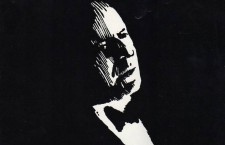A mature romanticism permeated Diana Krall’s intimate if not always challenging Quiet Nights. Issued on March 31, 2009, the album features three familiar Brazilian classics (including, yes, “The Boy from Ipanema”), four rhythmically infused popular American tunes and three elegant ballads.
Throughout, Diana Krall’s whispery smooth phrasing (part Julie London, part mature-era Peggy Lee) meshes perfectly – like slipping between silk sheets – with the lush orchestral background. That’s particularly so on Rogers and Hart’s “Where Or When,” Johnny Mercer’s “Too Marvelous Words” and a superlative take on “Guess I’ll Hang My Tears Out to Dry” by Sammy Cahn and Jules Styne.
Credit Jobim alum Claus Ogerman, the arranger with whom Krall reunites for the first time since 2001’s three million-selling The Look of Love, and a recent band trip to Rio to shoot a concert for an Eagle Vision DVD release. Krall found that bossa nova – a long-ago musical sensation in the States, it translates as “new way” in Portuguese – still sprung out of every sidewalk cafe, still leaked out of every passing car. This is no fad in Brazil; tracks like Jobim’s “Este Seu Olhar,” given a sensitive reading on Quiet Nights, are their songbook standards.
Diana Krall, it’s clear, internalized the crowd’s authentic emotion about this music, rethinking pop tunes like “Walk On By” by Hal David and Burt Bacharach; “I’ve Grown Accustomed to Your Face,” from Lerner-Loewe; and bonus track “How Can You Mend a Broken Heart,” the old Bee Gees hit.
I would have liked a bit more swing – like, say, on Elaine Elias’ earlier bossa nova tribute. Krall’s working group of guitarist Anthony Wilson, bassist John Clayton and drummer Jeff Hamilton is joined by Paulinho Da Costa, and I wish the percussionist had been allowed to gently goose this record along. Without that, Quiet Nights risks succumbing to its very quietude.
That said, Diana Krall’s voice pushes everything aside on tracks like “You’re My Thrill,” which vibrates with this sweet eroticism. She’s not taking the kind of risks associated with 2004’s The Girl in the Other Room, composed after her mother’s death, so much as trying for a delicately composed homage.
As such, Quiet Nights succeeds as easy listening, in the best sense of those words.
- The Bright Spots in George Harrison’s Troubled ‘Dark Horse’ Era - December 29, 2024
- The Pink Floyd Deep Cut That Perfectly Encapsulates ‘The Wall’ - November 29, 2024
- Why Pink Floyd’s ‘The Endless River’ Provided a Perfect Ending - November 11, 2024


